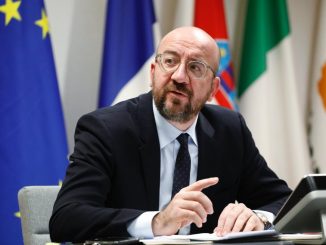Slowly the CAP has become less focused on only promoting exports and more on sustainable development. But that progress might be undone once member states start formulating their own agricultural policy objectives.
Introduction
The EU is an global agricultural powerhouse. Europe imports large quantities of raw commodities like soy, sugar cane or palm oil, tropical fruits and vegetables, while feeding a steady stream of processed foods, grains, dairy and meats back into the world market. EU-food and retail companies are among the biggest on the planet, its farmers receive hefty subsidies and decisions made in Brussels as well as any other European capital can create ripple effects impacting development and food security around the world.
The effect of that ripple can be either positive or negative, says Gilbert Bor. He runs a small farm in the western highlands of Kenya. The landscape around his town, Kapseret, is hilly, soils are colored a deep-red. Village roads are lined with pine trees, cows mostly of the Friesian breed. Besides running his own farm, Bor writes essays and lectures at the regional agricultural university.
Driving around town, Gilbert Bor regularly stops to talk to laborers or inspect cattle. Most farmers in the region grow maize or beans for subsistence. They seasonally collect their seeds in small wooden sheds and have constructed a drainage system for themselves, by themselves. Lately things have been changing for the better around Kapseret. Some years ago, the farming community decided to collectively invest in a milk storage facility to strengthen their bargaining position on local markets, while regional authorities started promoting cash-crops like avocado’s or coffee to move farmers up the value chain.
Every morning he gets up at 6 to lead his cows through the woods into the valley below. Recently he planted coffee instead of maize for the first time, he explains. Seedlings were handed out for free by regional authorities: ‘For higher value products like coffee, the EU is an important market, so I’m hoping to be able to export,’ Bor explains hopefully. ‘A lot of what Kenya exports is exempt from taxation in Europe. That also goes for Ghana, Nigeria or Francophone countries.’
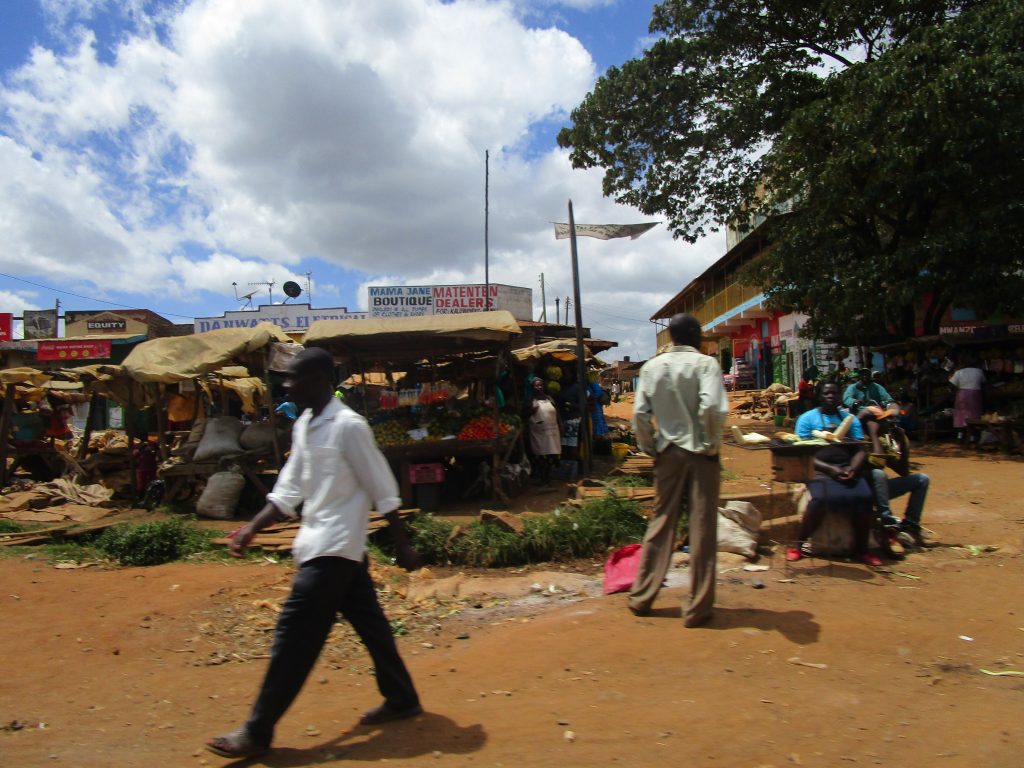
Sound policies targeting rural areas for development are absolutely crucial in order to stop the endless exodus of young Africans to the hellish slums of metropolises like Nairobi, but also to stem the seemingly endless stream of migrants risking their lives on the Mediterranean Sea to reach Europe.
Farmers like Bor play a crucial role in that development. For them, the EU can either be a crucial market for African produce, or a major competitor able to overflow local markets with cheap and highly subsidized foods. For that reason, Bor keeps a close eye on the new EU Common Agricultural Policy (CAP) that will shift legislative responsibility from the European Commission to member states.
‘Almost all EU-countries purchase Kenyan agricultural goods,’ Bor admits. ‘Up until now, farmers who profited most from exports to Europe, were sophisticated companies, doing horticulture or growing flowers. But there are also opportunities for small farmers like me in the organic market for coffee. That depends on what importing countries like Germany or the Netherlands decide to do. African farmers must keep a close eye on EU agricultural policy because it is important for our development. Especially now that the European Commission wants to shift a lot of the decision-making about such things back to national governments. Decisions taken in the EU matter for African farmers.’
Appraising the National CAP Strategic Plans
In 2018, the European Parliament for the first time commissioned a report to research the impact of the EU Common Agricultural Policy (CAP) outside of Europe. That study was head-authored by Professor Maria Blanco of the Technical University in Madrid. ‘During this most recent legislative CAP-period, we have seen progress in the CAP getting better aligned with development goals. But there is still room for improvement,’ Blanco explains. ‘Measuring the external effects of the CAP is complex. Look at sugar, for example. The European Commission wants to tax EU-consumers because they consume too much sugar. At the same time, we keep subsidising our own farmers to produce big quantities of cheap sugar beets.’
The direction of the CAP has for decades been decided at the European level. Since 2014, the CAP has tried to become more compatible with international sustainable development goals than before, the Blanco-report concludes; mainly by phasing out trade-distorting export subsidies and better aligning European with world food prices.
However increased export opportunities for developing countries on an equalized world market, have often proven dangerous for the global south, the Blanco-report concludes. More trade does not necessarily mean better incomes for small farmers, puts pressure on the environment or bring into a country financial interests for which judicial systems might not be ready, facilitate displacements of local peoples or disrespect human rights, Blanco explains: ‘To stick with the sugar example; importing sugar cane from outside Europe would actually be cheaper and in theory create economic activity in the global south. However, importing commodities from developing countries could also not at all stimulate sustainable development because we would facilitate land grabs or environmental pollution on the other side of the world.’
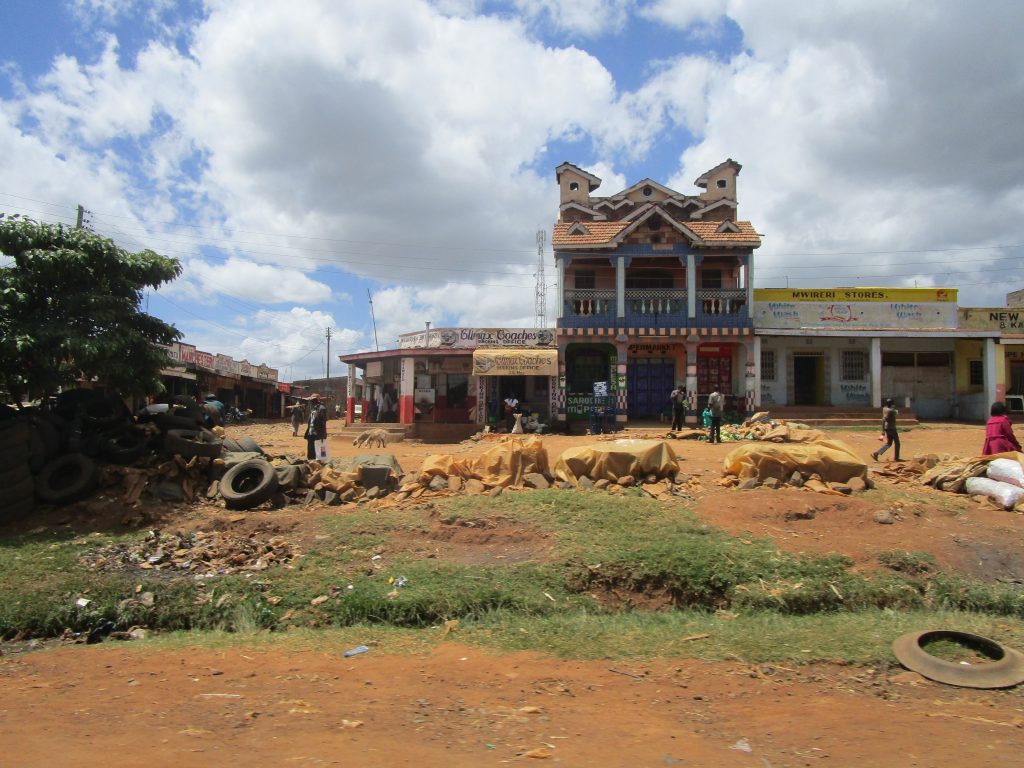
In 2018, the European Commission decided to shift legislative responsibility back to EU member-states by allowing them to write National Strategic Plans. How this will play out for developing countries is still unclear. Arc2020 will further analyse possible implications of the to evaluate how to critically assess the impact of such policy proposals best.
‘Any change in the CAP may have considerable influence not only on domestic markets but in the whole world. If you’d want to assess, ex ante, the possible effects of the upcoming National Strategic Plans, you’ll have to look beyond the CAP,’ Blanco explains. ‘Agricultural policies mainly impact farmers. But the biggest challenges for developing countries lie at other levels of the food chain. The CAP is often not the main driver in those cases. Even in the EU, farmers are not the most important beneficiaries in the web of legislation related to food and farming. Food industries have much more firepower in this respect. Fully understanding the National Strategic Plans implies finding out who’d benefit the most.’
Ongoing dumping
Agriculture has always been at the core of the European project. That, after all, started out in the wake of World War II on the premise of peace, prosperity and achieving food security. As a means to this end, the Common Agricultural Policy (CAP) was conceived in 1962 as a strategy to provide affordable food to citizens and a fair wage to farmers – mostly by imposing strict border protection on imports and fixing commodity prices in Europe at levels well above world markets.
As a result, European agriculture became so efficient that surpluses piled up in a range of key commodities. As a solution, European authorities introduced export refunds for farmers selling cheap on world markets – with terrible consequences for the development paths in the global south. European export subsidies put downward pressure on food prices by overflowing markets, destroyed local farming economies and caused many direct and indirect detrimental effects on the environment as well as working conditions.
Even in recent years, a proposed boost in German dairy-exports has been heavily criticized for the potential economic damage in developing countries, Italian processed tomato paste has increasingly driven local canning factories in Ghana out of the market, while surging exports of chicken meats, powdered and re-fattened milk to Western-Africa after the elimination of EU-milk quotas in 2015, could compound imbalances still further. ‘This ongoing dumping of cheap EU-produce in Africa had undermined livelihoods of farmers in developing countries,’ UN-rapporteur and director of Brussels based thinktank IPES-Food Olivier de Schutter explains. ‘Farmers who do not benefit from subsidies and cannot compete on price terms. Civil society has been raising this issue for decades, suggesting for instance that developing country producers should gain access to judicial remedies in the EU to compensate.’
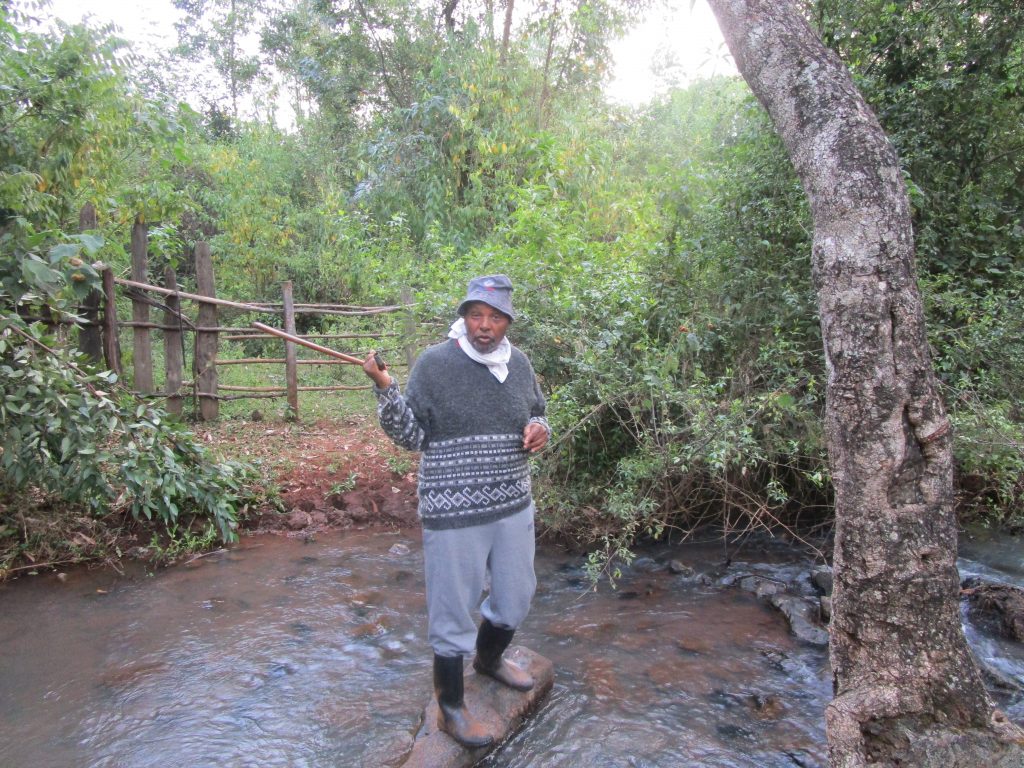
Highly problematic
More recently, markets for European farm produce have come under pressure due to Brexit, an increasingly protectionist United States and the coronavirus outbreak. In such an economic environment it’s questionable whether EU-governments would still prioritize developmental and sustainability concerns over seeking out new markets in Asia, Latin America or Africa to strengthen their respective agricultural sectors by maximizing output. ‘The real challenge now is that member states will not be as ambitious in their national plans as the CAP itself is right now,’ Blanco fears. ‘I’m afraid that if we lose EU-coordination in favor of national plans, we also lose our best instruments to apply common objectives. Every country will naturally think first about what’s best for their own agricultural economy, instead of considering EU-interests or even the developing world.’
The National Strategic Plans could also prove highly problematic if they’d lead to imports from developing countries facing new and unpredictable barriers at the national level, De Schutter says: ‘If countries concentrate their environmental measures on non-strategic sectors, while relaxing the requirements on and boosting the competitiveness of core export sectors, this could lead to intra-EU trade distortions and even dumping on external markets.
Conclusion
European agriculture has, by default, a big impact on agricultural systems, livelihoods and development paths around the world. But that impact does not have to be a negative one. A true shift toward sustainability in the EU would create a ripple effect around the world. EU-countries that imported the most organic products in 2019 were the Netherlands (32%), Germany (13%) and Belgium (11%) – with 70 percent of those imports coming from China (13%), Ukraine (10%), Dominican Republic (10%), Ecuador (9%), Peru (7%), Turkey (7%) and India (5%). Imports from China include organic oilcakes, while Ecuador, the Dominican Republic and Peru supply Europe with tropical fruits, nuts and spices, and Ukraine, Turkey and Kazakhstan mainly export organic wheats.
In Kenya, almost 80 percent of farmers work plots smaller than 20 acres. They mainly produce for local markets. But demand for cash crops from Kenya is on the increase. A new trade agreement might ship off up to 40 percent of Kenyan avocados to China. But for coffee, mangoes, macadamia nuts or peanuts Europe would remain crucial. According to EU-statistics, trade with African, Caribbean and Pacific (ACP) countries represented 12 percent of all European agri-food imports in 2016.
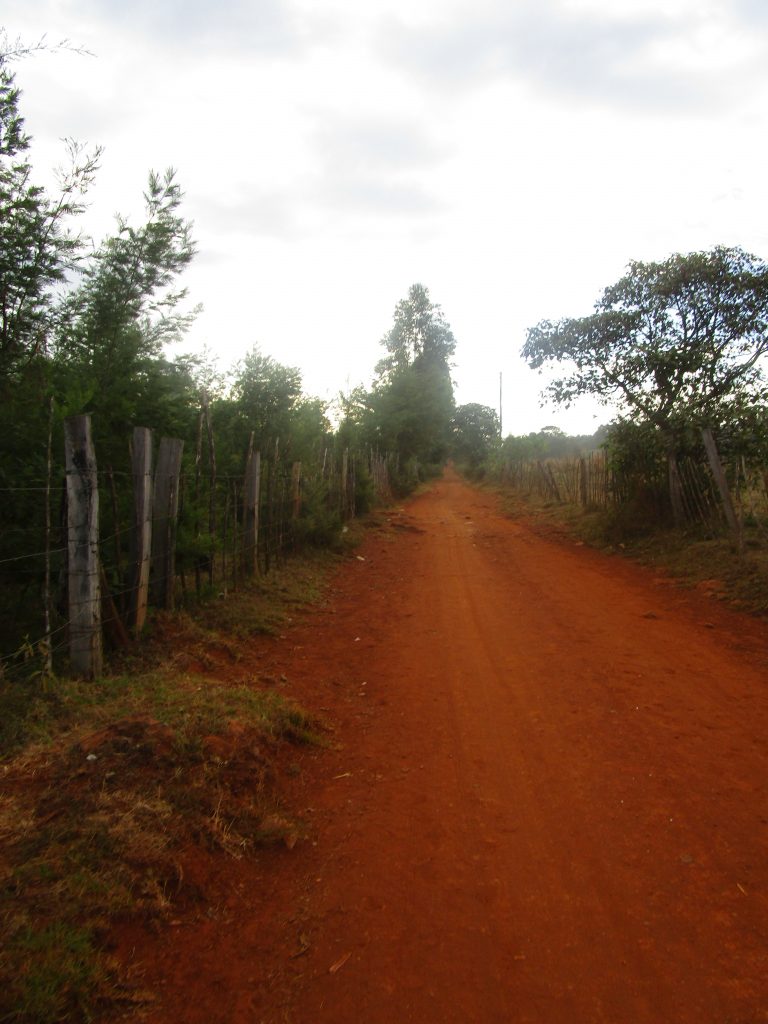
But a simplified focus on trade has in some countries resulted in displacements of local populations and adverse impacts on rural livelihoods – instead of bringing the development promised.
In the report Money Flows (2020) De Schutter’s thinktank, IPES-Food, analyzed a total of 445 agricultural development projects in Kenya with a cumulative budget of nearly 1.2 billion dollars. More than 70 percent were limited to supporting industrial agriculture via improved pesticide practices, livestock vaccines or reductions in post-harvest losses – mainly because the key imperative to produce large volumes of cheap commodities is hardwired into the global market, De Schutter argues: ‘In fact, the biggest problem still is that policies are aimed at helping companies to access commodities from various world regions at the lowest cost. Small-scale farmers in developing countries and in the EU itself pay the price. Despite CAP-reforms over the years, the EU does not seem to want to renounce its vocation as one of the world’s leading agricultural exporters.’
 This article is produced in cooperation with the
This article is produced in cooperation with the
Heinrich Böll Stiftung European Union.
More on CAP Strategic Plans
CAP Strategic Plans on Climate, Environment – Ever Decreasing Circles
European Green Deal | Revving Up For CAP Reform, Or More Hot Air?
Climate and environmentally ambitious CAP Strategic Plans: Based on what exactly?
How Transparent and Inclusive is the Design Process of the National CAP Strategic Plans?
Series | What will come from the CAP Strategic Plan Negotiations?





